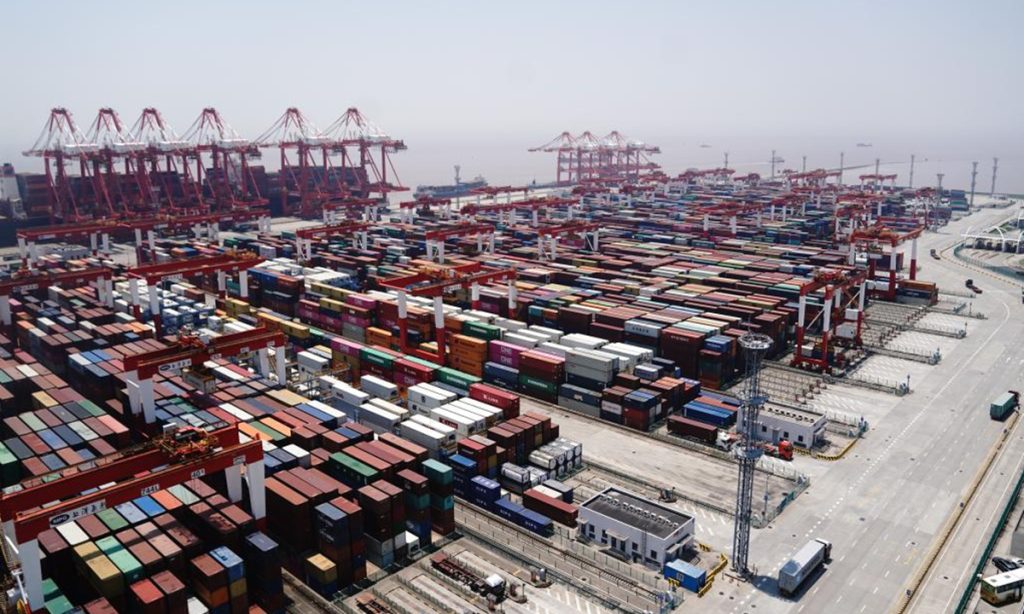China’s trade deficit with its 4th largest trade partner, South Korea, expands sevenfold in first 7 months

China's trade deficit with its fourth largest trade partner, South Korea, expanded sevenfold during the first seven months of the year, as imports from the country accelerated, data from China's General Administration of Customs showed on Wednesday.
Trade with South Korea increased by 8 percent during the period to reach 1.32 trillion yuan ($184.07 billion), as the country becomes China's fourth largest trading partner. Trade with the Asian neighbor accounted for 5.3 percent of China's total trade.
China's imports from South Korea shot up by 16.4 percent to reach 720.11 billion yuan, with exports to the country came down by 0.6 percent to reach 600.47 billion yuan, GAC data showed.
China's trade deficit with South Korea reached 119.64 billion yuan in the first seven months.
The foreign trade growth sped up by 0.4 percentage points from a reading of 7.6 percent during the January-June period, according to GAC. Imports growth also expanded by 0.7 percentage points as Chinese factory owners are purchasing more parts and materials to be turned into finished goods for export.
In July, South Korea, a leading indicator of China's tech imports, saw its China-bound exports leap 14.9 percent to hit a 21-month high of $11.4 billion, according to Reuters, citing data from the Ministry of Trade, Industry and Energy and the Korea International Trade Association.
It made China once again the leading destination for South Korean products in the first seven months this year, the Yonhap news agency reported on Sunday, thanks to rising shipments of semiconductors.
Chinese experts attribute the rapid trade growth to the limitations of the relentless US chip trade restrictions imposed on China.
Li Tianguo, an associate professor at the National Institute of International Strategy, attributed China's widening trade deficit with South Korea to the trade of high-tech and intermediate products such as semiconductors, wireless communication equipment, and display panels.
"Currently, demand in the global semiconductor market is picking up, with inventory levels of related manufacturers continuing to decline and prices returning to normal levels, causing China's imports from South Korea to rise accordingly, ultimately expanding China's trade deficit with South Korea," Li told the Global Times on Wednesday.